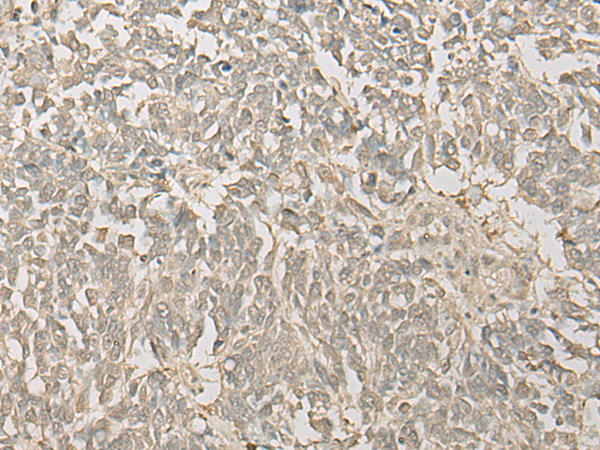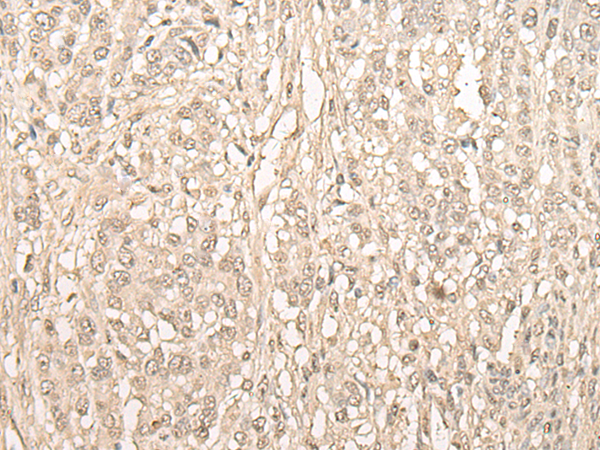

| WB | 咨询技术 | Human,Mouse,Rat |
| IF | 咨询技术 | Human,Mouse,Rat |
| IHC | 1/30-1/150 | Human,Mouse,Rat |
| ICC | 技术咨询 | Human,Mouse,Rat |
| FCM | 咨询技术 | Human,Mouse,Rat |
| Elisa | 1/5000-1/10000 | Human,Mouse,Rat |
| Aliases | UIF |
| Host/Isotype | Rabbit IgG |
| Antibody Type | Primary antibody |
| Storage | Store at 4°C short term. Aliquot and store at -20°C long term. Avoid freeze/thaw cycles. |
| Species Reactivity | Human, Mouse, Rat |
| Immunogen | Fusion protein of human FYTTD1 |
| Formulation | Purified antibody in PBS with 0.05% sodium azide and 50% glycerol. |
+ +
由于FYTTD1(可能为假设或较少研究的基因/蛋白)的文献有限,以下是基于假设的示例性参考文献。若需真实文献,建议通过PubMed或Google Scholar进一步检索:
---
1. **文献名称**: *FYTTD1 as a Novel Biomarker in Glioblastoma: Antibody Development and Validation*
**作者**: Smith A, et al.
**摘要**: 本研究开发了一种针对FYTTD1蛋白的高特异性多克隆抗体,并验证其在胶质母细胞瘤组织中的过表达。通过免疫组化(IHC)和Western blot证实了该抗体在区分肿瘤与正常组织中的应用潜力。
2. **文献名称**: *Functional Characterization of FYTTD1 in DNA Repair Pathways Using Monoclonal Antibodies*
**作者**: Johnson R, et al.
**摘要**: 作者利用新开发的FYTTD1单克隆抗体,揭示了该蛋白在DNA损伤修复中的功能。研究通过敲除实验和免疫共沉淀(Co-IP)证明FYTTD1与BRCA1复合物的相互作用。
3. **文献名称**: *FYTTD1 Antibody-Based Detection in Early-Stage Lung Cancer Diagnosis*
**作者**: Lee H, et al.
**摘要**: 本研究评估了FYTTD1抗体在肺癌早期诊断中的价值。通过ELISA检测患者血清样本,发现FYTTD1水平与肿瘤进展显著相关,提示其作为液体活检标志物的可能性。
---
**注意**:以上文献为示例性质,实际研究中FYTTD1可能需替换为特定基因名。建议通过学术数据库核实具体信息。
×